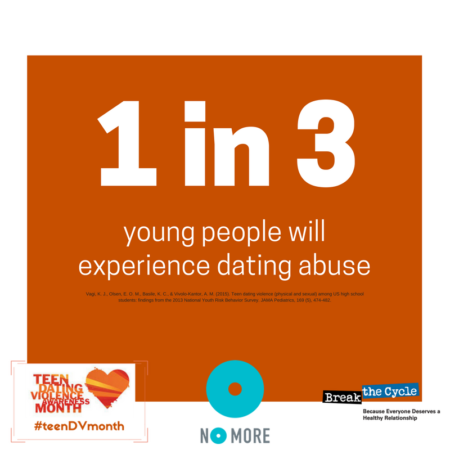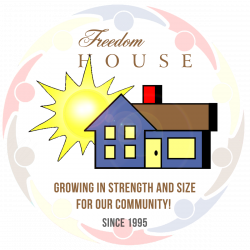
What is Teen Dating Violence?
Teen dating violence (TDV) is also referred to as dating violence. It is the physical, sexual, or emotional abuse within a relationship among adolescents and teens. It can involve the following behaviors.
- Physical Violence
- When a person tries to hurt another by physical force, such as hitting, kicking, choking, or other forms of physical force.
- Sexual Violence
- Attempting or forcing a partner to take part in a sexual act or sexual touching against their will. This also includes non-physical sexual behaviors, such as sharing sexual pictures or posting sexually about partner online. Sexting is also a form of sexual violence.
- Psychological/Emotional Abuse:
- The use of verbal and non-verbal communication with the intent to harm a partner emotionally or mentally. It can also be used to exert control over a partner.
- Stalking
- A pattern of unwanted, repeated contacted by a partner that causes fear for the victim’s safety. This can also include fear for the safety of other people close to the victim.
Dating violence can start early and leave a lasting effect on teens. It has a profound effect on health, wellbeing and opportunity. Violence is preventable and help is available.
How often does Teen Dating Violence happen?
Teen Dating Violence is common. Most teens believe teasing, name calling, and similar behaviors are “normal”. These behaviors can turn into more serious abuse.
Data from CDC’s Youth Risk Behavior Survey and the National Intimate Partner and Sexual Violence Survey indicate that:
- Nearly 1 in 11 female and approximately 1 in 14 male high school students report having experienced physical dating violence in the last year.
- About 1 in 8 female and 1 in 26 male high school students report having experienced sexual dating violence in the last year.
- 26% of women and 15% of men who were victims of contact sexual violence, physical violence, and/or stalking by an intimate partner in their lifetime first experienced these or other forms of violence by that partner before age 18.
Some teens are at greater risk than others. Sexual minority groups are disproportionately affected by all forms of violence, and some racial/ethnic minority groups are disproportionately affected by many types of violence. (Source)

What are the effects of Teen Dating Violence?
Unhealthy and abusive relationships can have both short and long term effects on teens. These can include, but are not limited to:
- Depression and anxiety
- Engaging in risky and unhealthy behaviors such as drugs and alcohol
- Antisocial behaviors such as theft, lying, hitting, and bullying
- Suicidal thoughts and self harm
Prevention and Intervention
- Teaching teens about healthy relationships, such as the skills to have and maintain healthy relationships
- This includes managing feelings and knowing how to communicate in a healthy way
- Modeling healthy relationships for teens
- If you suspect your teen is in an abusive or unhealthy relationship, make sure they know they can talk to you.
- Counseling and Advocacy is available through Freedom House for teens who have been in an abusive relationship or sexually assaulted.

